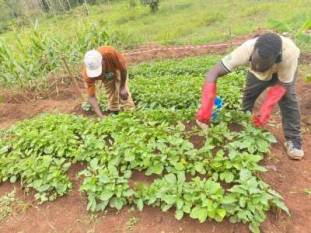This is the third training batch under the initiative, focused on introducing farmers, researchers, and agri-entrepreneurs to sustainable vegetable production methods using minimal inputs and no agrochemicals.
The programme was inaugurated by Vice-Chancellor Dr. Anand Kumar Singh, who highlighted the environmental and health hazards of excessive agrochemical use, stating, “It is imperative that we adopt low-input, eco-friendly techniques for vegetable farming to restore soil health and reduce pollution of air and groundwater.”
Singh showcased IMEC Film Farming, a Japanese hydroponic technology developed by Mebiol Inc., which enables high-yield, chemical-free cherry tomato cultivation using limited water and nutrients. He noted that tomatoes produced using this method record almost double the sweetness levels (measured in TSS) compared to conventional produce.
Hiroshi Yoshioka, CEO of Mebiol Inc., Japan, expressed his appreciation for CSA University’s collaborative approach, stating that protected cultivation using IMEC film can boost market prices and support the growth of agri-businesses based on clean-tech farming.
Programme Director P.K. Singh emphasized that the training aims to enhance women's participation in agriculture by equipping them with modern farming techniques and business insights. “It is not just about farming—it’s about building an agri-based rural economy,” he said.
Coordinator Rajiv added that the event includes 12 expert lectures delivered by scientists from leading research institutions, covering a broad spectrum of topics related to sustainable agriculture and protected cultivation.
The training attracted 35 participants, including progressive farmers, aspiring entrepreneurs, and postgraduate students from across Uttar Pradesh. Attendees also included senior academic leaders like the Dean of the Faculty of Community Science, the Director of Extension, and the Dean of the Horticulture Faculty.
The event reflects a growing momentum toward agroecology, climate-resilient practices, and high-value horticulture as India reimagines its farm economy.




















